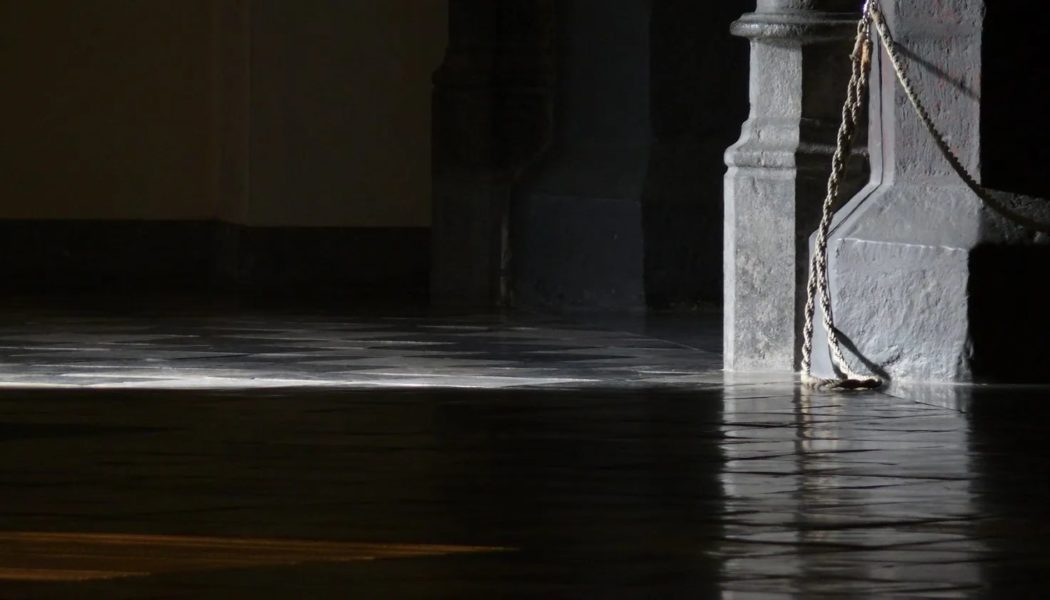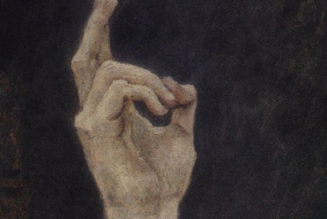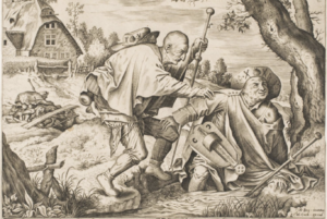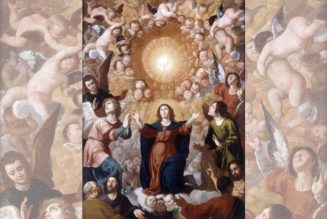
What Jesus says this Sunday, the 17th Sunday in Ordinary Time Year A, is literally true. We really can find a bright shining treasure box. We really do get a beautiful, white, round pearl of enormous value. The Lord really has gathered us to himself out of the cold, murky depths of darkness we were immersed in, dragging us up into the light.
And the First Reading for Sunday, about Solomon, is true for us too. We each receive wisdom greater than anyone ever received before us.
But this time, before we get to the literal, let’s look at the symbolic meaning of each of these parables first.
The treasure in the field is what an attentive farmhand finds.
Jesus has been telling us that the kingdom unfolds the way seeds or yeast do. Just as seeds grow naturally in ways we don’t control, faith, hope and love grow supernaturally in us. The best we can do is prepare the soil and keep from crowding the life of God out of our hearts by avoiding being preoccupied with the unimportant passing things of the world.
But in Sunday’s Gospel, Jesus shifts from seeing the Kingdom as something that unfolds of its own power inside us to something we have to find and obtain through sacrifice. In fact, each parable he gives is about finding God in our daily work.
Jesus first describes a manual laborer’s plow or shovel clinking unexpectedly against something underground when he says: “The kingdom of heaven is like a treasure buried in a field, which a person finds and hides again, and out of joy goes and sells all that he has and buys that field.”
Symbolically, that’s us, finding Christ while diligently going about our daily work. St. Hilary of Poitiers (315 AD-367 AD) says, “Christ points to wealth that has been covered up, for God is discovered in humanity.” The unskilled laborer finds God through his contact with others and recognizing the Gospel when he hears it.
The pearl is what an experienced practitioner — an expert or scholar — finds.
Next, Jesus says, “Again, the kingdom of heaven is like a merchant searching for fine pearls. When he finds a pearl of great price, he goes and sells all that he has and buys it.”
I wouldn’t know a pearl of great price from a decent fake if I studied them for hours. A merchant who has dedicated his life to studying the difference, can see it clearly. St. Hilary says, symbolically, “this passage is of value for the merchant who has long been steeped in the law. After lengthy labors, he finds out about this pearl and abandons those things that he obtained under the yoke of the law.”
In our world, rather than a scholar of the law, imagine a student of the world’s wisdom; someone who has sought life’s answers in formal or informal study of the best of human wisdom — the most credible books and in-depth podcasts. When the seeker finally finds that Jesus Christ is the source of wisdom, her search is over.
But Jesus tells a third parable to send the clear message: We don’t find God; he finds us — through his helpers.
Jesus called Peter and the Apostles “fishers of men,” and in Jesus’s final Kingdom simile this Sunday, he says “the Kingdom of heaven is like a net thrown into the sea, which collects fish of every kind.”
This is an image of the Church relentlessly seeking souls “of every kind” — in other words, the Church following Jesus’s command to “make disciples of all nations, baptizing them in the name of the Father and of the Son and of the Holy Spirit.”
We get caught in the net of the Church and get raised out of our misery, into the light, where we can be judged finally in our face-to-face encounter with Jesus Christ.
It is only through meeting Jesus Christ in the sacraments that we are “conformed to the image” of the Son of God, as St. Paul puts it in the Second Reading. God has predestined us — given each of us the grace we need to meet him. He prepared our place before we were born and it is waiting for us; if we will take it, if we will surrender to the Truth and be conformed to the image we were destined to become.
There’s a word for people who do choose that: wise.
Solomon, in Sunday’s First Reading, knows exactly what he needs most from God: wisdom. When God speaks to him like a genie in a bottle offering whatever he wishes, Solomon says, “Give your servant … an understanding heart to judge your people and to distinguish right from wrong.”
He gets just that. “Because you have asked for this … not for a long life for yourself, nor for riches, nor for the life of your enemies,” God says, “I do as you requested. I give you a heart so wise and understanding that there has never been anyone like you” — and never will be.
There is a clear parallel between what Solomon asks for and what the Church offers each of us today. Through baptism we are guaranteed the Seven Gifts of the Holy Spirit, which happen to track with what Solomon asks for and receives:
- Wisdom, the gift to “relish what is right,” as Solomon does;
- Understanding, the insight we could never get on our own, but only from God;
- Right judgement, or “counsel,” the ability to “distinguish right from wrong”;
- Knowledge, relying on God for the know-how to serve “in the midst of a people … so vast it cannot be numbered or counted.”
We get those four gifts and three others that aren’t described here but that Solomon sure could have used at the end of life, when he strayed from God. They are:
- Fortitude, confident reliance on God’s strength, not our own;
- Fear of the Lord, a respect that refuses to take God lightly; and
- Piety, the sweet consoling feeling of nearness to God in prayer.
All of it is ours in Baptism, renewed in confession, strengthened in confirmation, and received in Communion. We get it even more than Solomon did because we receive the fullness of the Holy Spirit and Jesus Christ himself. Solomon was indeed the wisest human being ever, but we participate in the life of Trinity, and God’s wisdom is greater.
All we have to do is what Solomon did: ask and receive, literally, what Jesus offers.
We get a literal treasure box, and an actual pearl of great price; we get dragged to the light and given untold real, practical wisdom.
Where do we find this literal treasure box? You can see it in every Catholic church in the world this Sunday: the tabernacle.
Where do we find a pearl of incalculable value? In the round white host held aloft by the priest and then placed on our tongues.
Where do we find ourselves gathered in the light by Christ? In our churches, vessels in the bark of Peter, the fisher of men.
And where do we gain unprecedented wisdom? In the teachings of the Catholic Church. Open the catechism and see. It is filled with genius answers to life’s hardest questions.
Right here, in the Church, we find everything Jesus offers this Sunday, everything we need to conform ourselves to our true image, everything we need to become who we were made to be.
Those of us who find the Way, Truth and Life of Jesus, find freedom and happiness forever — and we should never avoid saying what Jesus himself adds: Everyone who rejects the Way, Truth and Life will end up “thrown away” into “the fiery furnace.”
When do we reject this gift? When we are unwilling to do what those in the parables did.
They sold everything and we must also. We have to sell our lifestyles, fortunes and personal reputations to meet the demands of the Gospel.
The treasures God has made available to each of us are worth more than we could possibly pay.








